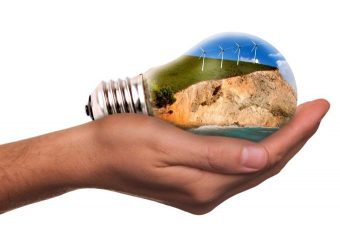
As you settled down to watch Strictly Come Dancing last Saturday evening there was a one in four chance your TV was being powered by the wind.
Trade body WindEurope confirmed yesterday that the European wind power sector set a new record last weekend, meeting 24.6 per cent of EU electricity demand on Saturday 28th October.
The group said the performance smashed the previous record of a 19.9 per cent share, which was set earlier in the month on 7th October.
The on-going expansion in Europe’s wind power capacity combined with strong northern winds and a continent-wide cool polar air mass to deliver the record performance.
Hourly output records also fell across the region, with the EU as a whole setting a new record of 89.9GW on Saturday evening. Germany also set a new record of 39.1GW, Poland delivered a record 5.1GW and Norway achieved a new high of 900MW.
In addition, Denmark saw 109 per cent of its power demand met by wind power.
Onshore wind dominated the market, delivering 21.8 per cent of European power throughout the day, while offshore wind provided a further 2.8 per cent.
The results come as two of Europe’s biggest economies continue to work on strategies that could deliver a further boost to the continent’s renewables sector.
Germany’s coalition talks could yet deliver a revamp of the country’s faltering climate strategy, which has been accused of failing to deliver on the government’s ambitious climate targets.
The leader of the Greens this week warned that it would not continue talks with Angela Merkel’s Christian Democratic Union and the centre right Free Democrats (FDP) unless the FDP officially endorses the country’s carbon targets.
The FDP had signalled it wants the goal of cutting emissions 40 per cent by 2020 – which Germany is on track to miss – to be reassessed. But Simone Peter, co-chair of the Greens, told Reuters the targets were non-negotiable.
“Before exploratory talks continue, the FDP must accept unconditionally the climate protection goals,” Peter said. “Otherwise the talks make no sense.”
Green groups are optimistic Merkel could seek to reinvigorate Germany’s decarbonisation strategy in order to secure the support of the Greens. However, she faces a tricky political challenge squaring the carbon targets with the FDP’s concerns.
Meanwhile, France’s Environment Minister Nicolas Hulot told Le Monde this week that the government would come forward with a new ‘Green Deal’ plan next year, designed to make good on its promise to reduce reliance on nuclear power and step up renewables deployment.
Source: businessgreen.com



